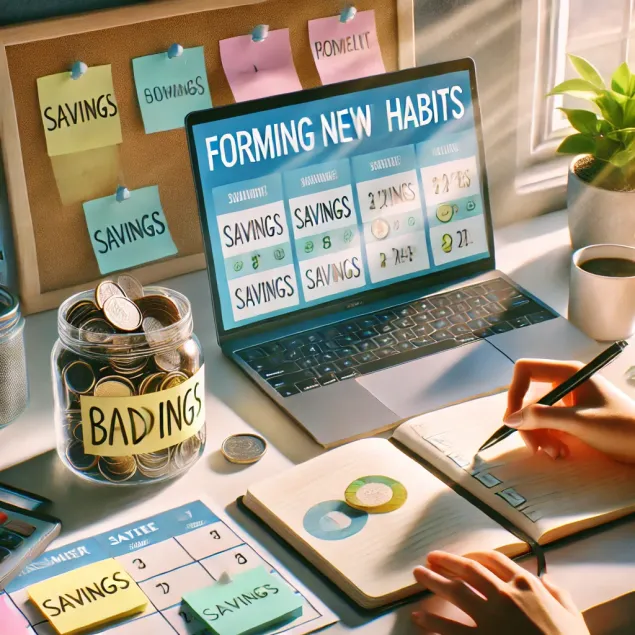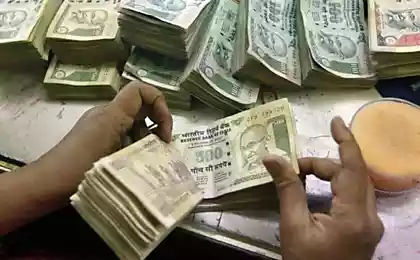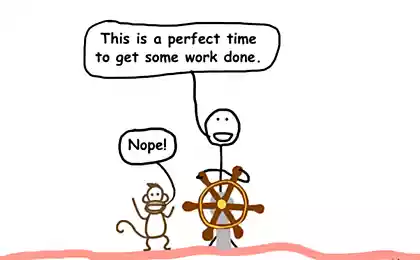224
Where money goes: 9 habits that lead to poverty

Introduction. Have you ever wondered why some people don’t have enough money despite their income? The phrase “Money flies away like sand through your fingers” sounds quite often. But not everyone understands that behind this is a whole complex of daily habits that “eat” finances. In this article, we will look at nine of these habits that lead to poverty and try to understand why these behaviors are formed and how they can be changed. It is surprising how small at first glance actions can have a huge impact on financial well-being. Some blame circumstances, low wages, or a bad economy, but in most cases, the key to change begins with personal decisions and habits. Let's go into more detail.
1. Impulsive shopping
One of the main reasons why people are short of money is thoughtless spending. According to Statista, the percentage of impulsive purchases increases as online stores and convenient payment services spread. Walking past a showcase or seeing a “3 for the price of 2” action, we often succumb to the temptation to buy things we don’t need. As a result, at the end of the month we pay for unnecessary goods that are empty on the shelves.
- Why this happens: Impulsive purchases are fueled by emotional decisions – we want to reward ourselves or relieve stress.
- How to fight: Before paying for the goods, wait at least a day. If the desire to buy has not disappeared, perhaps this item is really necessary.
2. Lack of a financial plan
People often spend everything they earn without thinking about savings or budget allocation. Life from paycheck to paycheck seems a natural format, but as a result, a person constantly walks in a vicious circle of debt and loans become an integral part of his reality.
- Why this happens: Financial illiteracy and lack of a clear plan. Most people are not taught how to properly account for income and expenses.
- How to fight: Have a budget – you can in the form of a table or app to see where the money goes. Set limits on each category of spending (food, entertainment, transportation, etc.).
3. A life in debt
Credit cards and quick loans sometimes really save, but if it turns into a habit, then you can quietly “dive” into a debt pit. High-interest loans, leasing and other similar tools mask the real value of purchases.
- Why this happens: The desire to get what you want immediately without having the full amount. “Living in the here and now” is how this motivation is formulated.
- How to fight: Try to stick to the principle of “Accumulate first, buy later”, especially when it is not a matter of necessity.
4. Neglect of cost accounting
The lack of habit to carefully consider even small expenses leads to an imperceptible “leakage” of finances. Buying takeaway coffee, spontaneous snacks, subscribing to services you don’t use – all this seems to be a penny, but in the aggregate it makes impressive amounts.
- Why this happens: People underestimate the power of small spending without seeing the full picture.
- How to fight: Keep a weekly "spending diary" and at the end of the week analyze what the money was spent on. This will help to identify financial holes.
5. Lack of airbag
Any unforeseen situation (illness, breakdown of equipment, urgent repairs) without reserve funds turns into a huge problem. And if there is no airbag, then you have to borrow or take loans, aggravating the financial situation.
- Why this happens: People often believe that they “live one day” and do not plan force majeure.
- How to fight: Start saving at least 10% of each income to form a reserve fund for at least 3 months of spending.
6. Inability to bargain or seek discounts
In many cultures, bargaining is something common, and in some countries it is even part of the tradition. However, many of us are afraid or shy of bargaining, overpaying for goods and services. The same applies to the ability to monitor discounts, promotions and sales.
- Why this happens: Psychological barrier and fear of looking “greedy” or “petty.”
- How to fight: Trading is not appropriate everywhere, but do not hesitate to ask about discounts and promotions. Subscribe to the mailing list of stores, use coupons and promotional codes.
7. Investment illiteracy
One of the surest ways to financial stability is the ability to increase savings. However, in our reality, many people either do not think about investing at all, or are afraid to get burned after a negative experience or rumors. As a result, money is either “under the mattress”, losing value due to inflation, or is spent on trifles.
- Why this happens: Lack of information or fear of risk.
- How to fight: Start with small amounts, study investment literacy, consult with professionals, or use reliable funds and bonds.
8. Lack of goals and priorities
When a person lives without financial goals (to buy housing, save for studies, travel or start-up), money is automatically spent on meaningless things. Pursuit of small pleasures without a global purpose is a sure way to feel empty in your wallet.
- Why this happens: It is easier for people to “go with the flow” than to set big tasks and go to them.
- How to fight: Set specific short- and long-term goals. When you have a clear reference point, it is easier to give up fleeting spending.
9. Life on display
Some choose overtly expensive things or events purely for status. Loans for the latest iPhones, designer clothes, luxury travel on credit – all for the sake of “likes” and approval of society. As a result, behind the external gloss is financial insolvency.
- Why this happens: Social media and marketing tell us that prestige equals success. And people try to conform.
- How to fight: Learn to separate a real need from an attempt to make an impression. Invest in personal growth, not the illusion of status.

How to change bad habits?
Changing long-term patterns of behavior is not easy, but it is possible. The American Psychological Association (APA) states that conscious effort and regular practice are required to form a new habit for at least a few weeks. It's important to remember:
- Setting realistic goals: Start with small, achievable goals to feel successful and motivated.
- Establishment of cost accounting systems: Be honest with yourself and analyze your spending regularly.
- Seeking support: Close friends or partners who share your saving principles can be of great help.
- Learning financial literacy: Read books, blogs, and podcasts about personal finance and investment.
- Automation of savings: set up an autotransfer of some of the income to a savings account - so that there is no temptation to spend everything.

Conclusion
Our habits control our wallet. Sometimes we don’t even notice that specific behavioral patterns entail a constant lack of resources. Impulsive buying, living in debt, not having a financial plan, and ignoring investment are all links in a chain that leads to poverty, or at least to chronic money shortages.
However, as practice shows, all these habits can be replaced by healthier ones from a financial point of view. It is enough to realize your mistakes and start step by step to rebuild the approach to money: take into account expenses, draw up and comply with the budget, learn financial literacy. The result will not be long in coming: you will notice that money will cease to “flew” away, there will be an awareness of where and why it goes, and most importantly, there will be an opportunity to plan for a more stable and prosperous future.
The Most Popular People in the World and Their Philosophy of Life
Healthy Habits: 15 Daily Activities That Will Prolong Your Life























